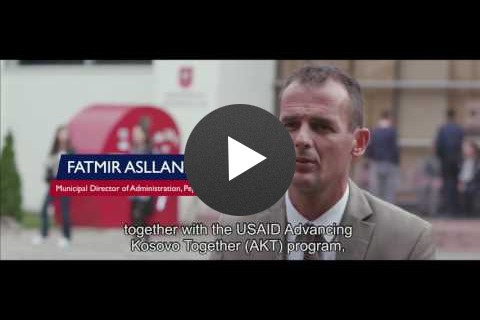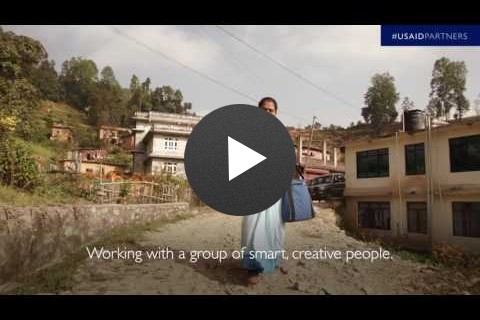Over the past few years, the increase in the use of modern contraceptives in Madagascar has slowed down. Enabling couples to determine whether, when and how often to have children is vital to safe motherhood and healthy families. In order for community health workers to be able to provide contraception to their clients, they need to ascertain that they are not pregnant.
Acting on the call - ending preventable child and maternal deaths
03:40
Video Transcript
Over the past few years, the increase in the use of modern contraceptives in Madagascar has slowed down. In order for community health workers to be able to provide contraception to their clients, they need to ascertain that they are not pregnant.
We recently traveled to Ambalakely, a small village on the outskirts of Ranomafana, to celebrate Community Health Volunteers who were graduating from a specialized training on usage of pregnancy test kits. We were fortunate to have the U.S. Ambassador and local officials preside over the ceremony and present certificates. It was truly a notable day for these volunteers and for the women who they will help.
“Today, we would like to highlight an important milestone in improving access to family planning methods to Malagasy women. Madagascar is now the first country in the world to scale up pregnancy test use by community health volunteers. The increased availability of this test will encourage more women to access community health services, including oral and injectable family planning methods that lead to improved health and better outcomes for women and children.”
It is therefore essential that all women who want to and are eligible to receive family planning services are able to access contraception. In order for Community Health Volunteers to be able to provide contraception to their clients, they need to ascertain that they are not pregnant.
- "The advantages to testing are twofold: - (a) for the woman, she will know that she is pregnant or not. When a client comes to see me for family planning services, I have to ascertain that she is not pregnant and I may use the pregnancy test kit unless she is menstruating. If testing is positive, I refer her immediately to the CSB for an antenatal consultation. If testing is negative, I give her the contraceptive method of her choice.
- The advantage to testing for the client is that she knows without doubt that she’s pregnant or not.
- For me, when I know the client is pregnant, I can fill out the referral card for her to go to the CSB. If she is not pregnant, I give her the contraceptive method of her choice. "
In 2013, USAID conducted a study to test whether providing pregnancy test kits to Community Health Volunteers is an effective approach to increase use of oral and injectable contraceptives among potential clients. The results revealed a monthly increase of 24 percent in the number of clients using these methods in the areas where the survey was conducted.
Informed by this evidence, a technical task force was formed, including the Ministry of Health and technical and financial partners, to scale up the use of pregnancy test kits.
By the end of the scale-up, more than 14,000 Community Health Volunteers will have been trained to provide pregnancy testing services across the country. Increasing access to family planning results in profound health, economic and social benefits and could prevent up to 30 percent of maternal deaths that occur each year.
This intervention alone will increase access to short acting oral contraceptives: empowering families to decide, with much greater freedom, whether, when and how many children to have: empowering families to plan their lives, and invest in the children they already have.
shkurt 6, 2017















Comment
Make a general inquiry or suggest an improvement.